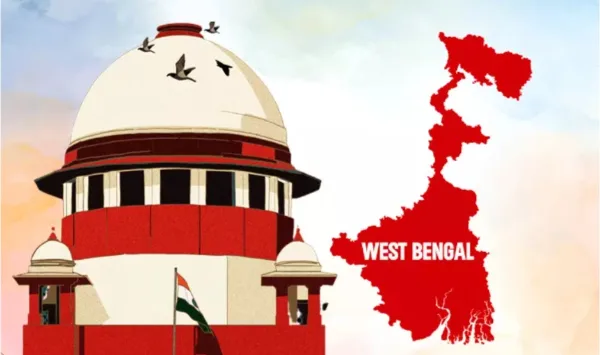The Supreme Court’s recent notice to the Trinamool Congress (TMC)-led West Bengal government regarding its reservation policy for 77 Muslim communities under the Other Backward Classes (OBC) category has ignited the debate over the misuse of affirmative action. This policy, a blatant attempt at appeasement, has exposed the contradictions in the TMC’s claims of safeguarding secularism while engaging in divisive politics. By granting religion-based reservations, the TMC risks eroding constitutional principles qua affirmative action.
The controversy stems from the TMC’s blanket inclusion of Muslim groups dehors the intent of the constitution and its framers. The Constitution does not envisage such provisions for Muslim community. This issue was aptly and elaborately discussed in the constituent assembly and they have consciously kept aside the Muslim population from the benefit of the reservation policy and therefore the action of West Bengal Government led by TMC is therefore not tenable in the scheme of the Constitution.
The framers of the Indian Constitution excluded Muslims from the Scheduled Caste reservation framework because caste-based discrimination was historically rooted in the Hindu social order. The Presidential Order of 1950 restricted Scheduled Caste status to Hindus, later extending it to Sikhs (1956) and Buddhists (1990), as these communities faced similar caste-based exclusion and untouchability practices. This decision reflected an understanding that caste oppression, unlike economic or social backwardness, was unique to the Hindu caste system and its derivatives, and thus reservations were framed to address this specific historical injustice.
The Calcutta High Court previously invalidated this policy, citing its lack of legal grounding and the absence of recommendations from the Backward Classes Commission. Despite this judicial reprimand, the West Bengal government has continued to advocate for a policy that critics argue is aimed more at consolidating its Muslim vote bank, which forms approximately 27 per cent of the state’s population, than at ensuring equitable development.
The Supreme Court has, on several occasions, upheld the intent and wisdom of the members of the constituent assembly and suggested the government agency not to tinker with constitutional principles regarding affirmative action.
The TMC, a party that has frequently claimed that secularism is under threat, now finds itself at odds with its stated ideals. By pushing for religion-based reservations, it contradicts its own narrative and undermines India’s foundational principle on reservation. Critics argue that the party’s policies are driven not by a genuine desire to uplift marginalized communities but by a calculated strategy to polarize the electorate. This is done by the West Bengal i.e. TMC only to secure its Muslim vote bank.
The TMC’s policy has drawn sharp criticism for undermining meritocracy and promoting a divisive agenda. By prioritizing religion over measurable socio-economic backwardness, the West Bengal government not only betrays the Constitution but also jeopardizes national unity. Affirmative action, as envisioned by Dr BR Ambedkar was meant to address caste-based inequities and socio-economic disadvantages, not to further sectarian politics.



















Comments